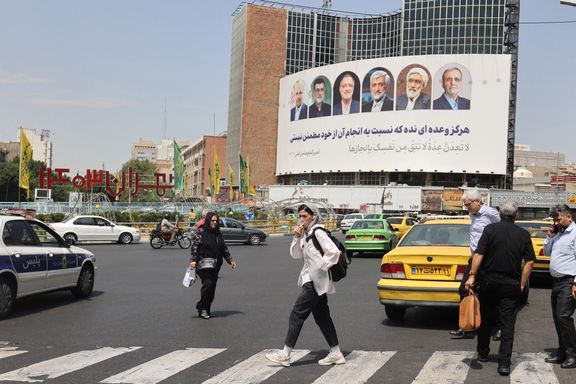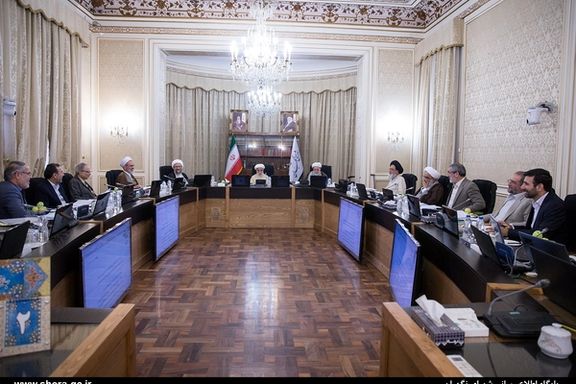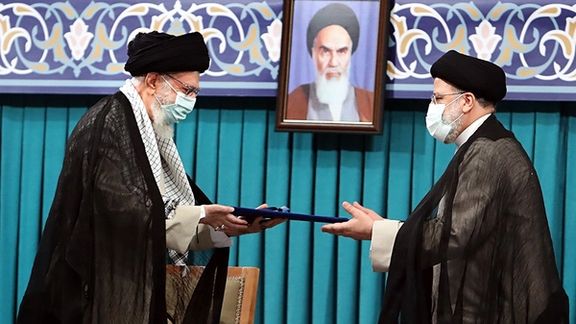The illusion of democracy: Unmasking Iran's presidential election

Last Friday's presidential election in the Islamic Republic of Iran (IRI) serves as a stark reminder that the country’s electoral process is neither free nor fair.

Last Friday's presidential election in the Islamic Republic of Iran (IRI) serves as a stark reminder that the country’s electoral process is neither free nor fair.
While the Islamic government promotes participation as voluntary and democratic, a closer examination reveals a system riddled with coercion, manipulation, and inherent inequality.
Iran’s elections are often portrayed as a contest between fundamentalists and reformists, suggesting a choice for the electorate. However, this dichotomy can be considered highly misleading, as it oversimplifies the political landscape and obscures the underlying complexities.
The real power lies not with the elected president but with the Supreme Leader and the unelected bodies that serve him. The Guardian Council, an unelected body, vets all candidates and can disqualify any deemed insufficiently loyal to the regime.
This ensures that only those who align with the Supreme Leader’s vision can run for office, transforming the election into a controlled charade rather than a genuine democratic exercise – as experts have often noted.

The people's vote becomes meaningless when an unelected individual, the Supreme Leader, holds the power to nullify their decisions.
According to Article 110, Clause 9 of the Iranian Constitution, the Supreme Leader's endorsement is required for the presidential decree to take effect. This endorsement signifies that until the Supreme Leader approves the elected president, the president has no legal authority over the executive branch.
This mechanism underscores that the legitimacy of the people's vote is contingent upon the Supreme Leader's signature, which confers power to the president.
Furthermore, the Supreme Leader's endorsement serves a supervisory role throughout the president's term. If the president deviates from prescribed principles, the Supreme Leader can withdraw his endorsement, voiding the president's authority and legitimacy.
Thus, the system structurally ensures that ultimate power remains with the Supreme Leader, thereby significantly diminishing the impact of the popular vote and perpetuating the state’s autocratic framework.
Even if a candidate emerges victorious from this skewed process, their power remains severely constrained.
The Supreme Leader, who holds ultimate authority, can override presidential decisions, rendering the office of the presidency largely ceremonial.
The parallel institutions created by the Supreme Leader, including the Islamic Revolutionary Guard and various councils, wield significant power over key aspects of governance and policy, further diluting the president’s influence.

Contrary to the Islamic Republic’s claims, participation in elections is far from voluntary. Voting habits are closely monitored, and individuals who do not participate often face severe repercussions.
Access to higher education, government jobs, and even basic civil rights can be contingent upon one’s voting record. Those who abstain from voting are frequently punished, directly or indirectly, when seeking employment or educational opportunities.
This coercion ensures a high voter turnout, which the regime uses to claim legitimacy while masking the underlying lack of genuine freedom.
Additionally, the high number of void votes indicates that many people go to the voting polls only to receive the associated benefits but refuse to actually vote for any candidate.
This phenomenon further underscores the disillusionment and lack of genuine choice faced by the electorate, many of whom likely participate under duress rather than as an authentic exercise of democratic will.
The system’s deep-seated discrimination
The discriminatory nature of Iran's political system extends beyond the electoral process, influencing all aspects of governance.
The constitution of the IRI primarily categorizes people into seven distinct groups, assigning different rights to each.
This hierarchical structure starts with a gender divide, privileging men over women, and extends to religious discrimination, where Muslims are prioritized over non-Muslims. Among non-Muslims, those whose religions are mentioned in the Quran are given more rights than those that are not, who face even greater discrimination.
Muslims are further divided into Shia and Sunni, with Shia Muslims, particularly those of the Twelve-Imam sect, enjoying the most privileges. Within this sect, there is an additional distinction between ordinary believers and mujtahids (Islamic scholars qualified to interpret religious law), with mujtahids holding significantly more power and rights.
For example, Iran's ten key decision-making institutions, including the Supreme Leader, the Council of Experts, the Guardian Council, the head of the judiciary, the head of the Supreme Court, and the Attorney General, are exclusively reserved for mujtahids.
This structure excludes more than 99% of the Iranian population, including all women, non-Muslims, and non-mujtahid Muslims, from participating in these critical roles.
The laws of the IRI are steeped in practices that violate basic human rights. These include stoning, retribution, dowry, polygamy for men, and whipping. Women’s rights are severely curtailed, with their legal status considered half that of men. Women are deprived of rights to divorce and child custody, while Baha'is and Sunnis face severe restrictions on their right to study, work, and travel. During Eid celebrations, Sunnis are prohibited from having mosques or conducting congregational prayers in major cities.
These practices are part of a broader system of discrimination and oppression that has persisted for the past 45 years under the Islamic Republic.
The path to freedom and democracy
The constitution of Iran, the gender-apartheid system of the Islamic Republic, religious governance, and Islamic ideology have all contributed to the human rights abuses perpetrated over the past four decades.
Thus, true freedom and democracy in Iran may only be achievable by transitioning to a secular government based on the principles outlined in the Universal Declaration of Human Rights.
The political system’s portrayal of a choice between fundamentalists and reformists serves as a tactic to force people to choose between bad and worse. Even this false choice was absent in the latest election, as candidates openly pledged loyalty to the Supreme Leader and made no promises of genuine reform. They offered hollow promises of economic improvement, despite a historical pattern of rising inflation, unemployment, and housing prices.
Under the current system, addressing Iran's structural problems is practically impossible, as real power resides with the Supreme Leader and the parallel institutions he controls. The outcomes for past presidents and prime ministers—many of whom have been imprisoned, sidelined, or died under suspicious circumstances—highlight the difficulties of achieving reform within the existing framework. This suggests that significant change is seemingly impossible without altering the concentration of power within these established structures.
Critics and opponents of the Islamic Republic insist that Iran's presidential election last Friday was not an exercise in democracy but a stark reminder of the regime's authoritarian nature. They argue that the only apparent path to genuine freedom and democracy lies in dismantling the current system and establishing a government that respects the rights and dignity of all its citizens.